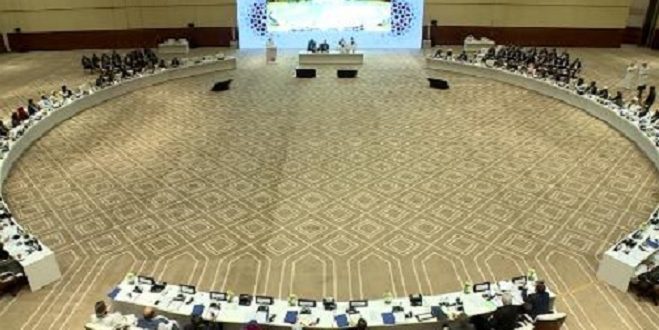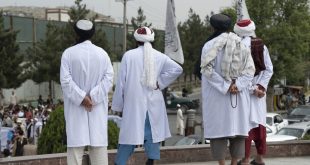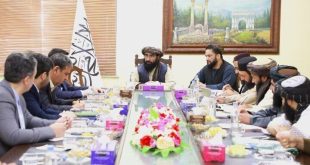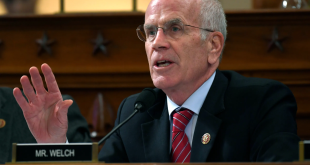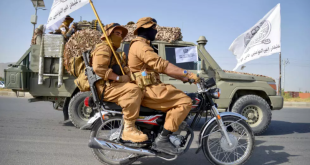By Mohammed Gul SAHIBBZADA
Since the US and the Taliban signed an agreement early this year, prospects for end of the war and start of negotiation between the Afghan Government and the Taliban have become very vivid. According to the US envoy for Afghan peace, Ambassador Zalmai Khalilzad, the accord between the US and the Taliban was to end the war and pave the way for intra-Afghan negotiation to reach lasting peace. He is rightly candid before the US House Subcommittee on 22 September 2020 that ‘the Afghan people will suffer if there is no peace settlement’ and further says at the US Institute of Peace that situation in Afghanistan is different than it was when US got engaged in 2001/ 2002.
Though delayed substantially, intra-Afghan negotiations started on 12 September 2020 between delegations of the Afghan Government and the Taliban in Doha. The Afghan Government side have their own list of points to include in the agenda for talks and the Taliban have theirs, and both sides have been talking about their ‘red lines’ where they intend not to compromise such as democracy, rights of women, last two decades of gains areas of state institutions and freedom of speech for Afghan Government and ‘Islamic Governing system’ for the Taliban. In the backdrop of historic records of breaking their ‘redlines’ several times, this time it is expected – owing to international pressure – particularly the US – negotiating parties will exhibit resilience to move forward to reach some kind of peace agreement – either by sharing power or agreeing to a joint mechanism.
The present Government was formed by Mohammad Ashraf Ghani by winning hardly a million votes after an election where less than ten percent of the Afghan population of around thirty-four million cast their votes, and the results were not accepted by his major competitor, Dr. Abdullah Abdullah. Keeping in view the prevailing security situation and entrenched insurgency, the West encouraged them to agree to a patchwork deal, which they rightly agreed in Afghan interests and formed a coalition sharing state resources and responsibilities because there weren’t any other alternatives.
The US has been supporting Afghan Government since last 18 years by spending almost one trillion of US dollar with an aim to stabilize and strengthen the efforts of Afghanistan in the process of formation of strong state institutions, but Afghan Government leaders failed to show unity of purpose and political willingness. Instead, they contributed in the prevailing endemic corruption. This was one of the factors that contributed in the US Government’s fatigue to support Afghan Government led and Coalitions forces supported security driven peace and security model and obliged the US administration to open direct talks with the Taliban. It is a fact that the West wants results for its investments and support and Afghan Government failed to show it. On the other hand, Taliban’s unity of command, resilience and sustainability to continue their insurgency – a complex, religious-political, suicides triggered and geo-politically supported insurgency; respect for territorial integrity; severance from Al-Qaeda and their omnipresence across the country have made the US to give it a second thought for not to engage with them in direct dialogue. Same time, the Taliban have no well-defined model of Government for the country, except for their slogan that they ‘want Islamic government’ – without elaborating which types of Islamic Governments, example Indonesian style, Malaysian style or their own patronaged country Pakistan style.
The road ahead is not a smooth one and there would be many obstacles. In addition to Taliban, there are many terrorist groups and foreign terrorist fighters (FTFs) operating in Afghanistan, including Al Qaeda and Islamic State in Khorasan Province (ISKP). Moreover, there are already reports that the Taliban field fighters are switching into potentially new ‘insurgent groups’ for possible future eventualities in the event peace negotiations collapse. Regional and international rivalries and geo-political interests do exist in the country, which may give rise to splinter groups, spoilers and organized crime syndicates. Also, there is a political risk to the ongoing peace negotiation as what would happen if the US Administration changes its reins in the election later this year.
From the look of it, people of Afghanistan do not seem to have their voices in the ongoing peace negotiations except through the Government appointed delegation – urban political elites with modern values, including women delegates. On the other hand, Afghans are squeezed to that ‘ninety percent of Afghanistan’s population is living below the poverty line’ which is US$ 2 a day and they aspire for a different Afghanistan. Under these circumstances it is hard to believe that tangible results will emanate from the ongoing peace negotiations with implications on social and economic conditions of Afghans except political and security power sharing and mutual compromises.
The Taliban sides have been very vocal on their demand of installing ‘interim government’ before peace negotiation started early this month. Main motive behind bringing in interim Government is to destabilize and disrupt functioning institutions of Afghanistan, such as Ministry of Defense, Ministry of Interior, National Directorate of Security (NDS) and weaken the strengths which Afghanistan acquired as the State in last two decades. These types of demands should never be accepted to put on the table of peace negotiation in order to avoid all out civil war, anarchism and complete annihilation of the Afghan Government’s functional institutions. The world is already simmering with Afghan refugee problem, a large number of which are in Pakistan, appx 2.5 million followed by Iran, appx 2 million and collapse of institutions may trigger refugees more. The refugee diaspora should be part of the peace process so that refugee return remains one of the agenda to envision Afghan society which include them. Intense geo-political rivalries may not be conducive to get all to cooperate each other and so, Afghanistan needs to devise a way where she can have Afghan led and Afghan owned peace process and also Afghan controlled to minimize frictions among regional and international rivals on Afghan soil. It is an appropriate time that regional economic giant India should reorient its strategic involvement in Afghanistan to be ‘Afghan centered’ promoting peace and security through its restructured development aid which stabilizes Afghanistan. Afghans, in general, look forward strengthening historical and cultural bondages with India and draw upon inspiration, experiences and guidance in indoctrinating, conceptualizing, rebuilding and restructuring state institutions which are inclusive of its diversity and based upon the constitutionalism and basic tenants of Islam including protection to minorities. Recently, India signaled shift in her approach and engaged in the peace process when the Foreign Minister of India Jaishankar joined the intra-Afghan talks commencement ceremony through video link on 12 September 2020. All Afghans, including Taliban must welcome for this shift.
 Afghanistan Times
Afghanistan Times
